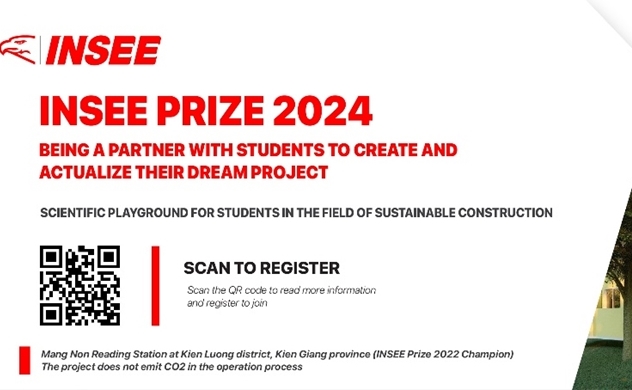Vietnam employees upbeat about AI-created opportunities: PwC study

Employees in Vietnam are optimistic about the impact of artificial Intelligence on their jobs. Photo courtesy of PwC Vietnam.
The ratio for Asia Pacific as a whole was 51%, PwC’s 2023 Hopes and Fears Global Workforce survey released on Wednesday showed. A total of 19,500 Asia Pacific employees took part in the study, including 1,000 from Vietnam.
The Vietnamese respondents were very positive about the opportunities and benefits that artificial intelligence (AI) could bring to their careers. Of them, 60% thought that AI would help them increase productivity or efficiency at work (versus 41% for Asia Pacific), and 58% viewed it as an opportunity to learn new skills (Asia Pacific: 34%).
Industries such as technology, media, telecommunications, and financial services saw the greatest potential for improved productivity through AI, according to the study. In contrast, employees in the healthcare, government, and public sectors expressed the most confidence that AI would not replace their roles.
PwC Vietnam CEO Mai Viet Hung Tran commented: “It’s encouraging that Vietnamese business leaders and employees have started on the journey of transformation. While each business transformation is different, the importance of people remains at the core. We must come together in new ways to build trust and deliver sustainable outcomes.”
The PwC survey identified six factors underpinning reinvention readiness, namely business viability, employee sentiment, workforce skills, emerging technology, work environment, and climate action.
Levels of job satisfaction in Asia Pacific have not changed significantly over the past year, the study showed. However, job satisfaction levels varied significantly across the region. Mature economies like Japan, South Korea, Hong Kong, and Taiwan reported lower levels of job satisfaction, ranging from 29% to 45%. Meanwhile, employees in Thailand, Indonesia, the Philippines, mainland China, and India displayed higher levels of job satisfaction, with ratios ranging from 70% to 79%.
In Vietnam, 59% were very or moderately satisfied with their jobs, consistent with Asia Pacific (57%).
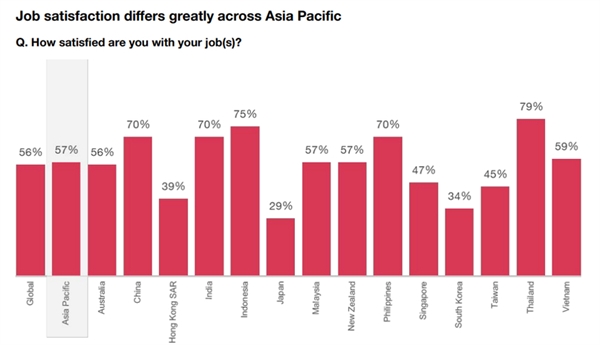 |
Roughly 40% of employees expressed that they were extremely or highly likely to ask for a pay rise or promotion in the next 12 months. Vietnamese employees were slightly less likely to ask for a promotion (34%) and change employers (20%) than their Asia Pacific counterparts. These figures represent a 7-10% increase compared to the previous year's survey, indicating increased confidence among employees to seek better compensation or career opportunities.
The younger generation of employees at senior levels, and those working in larger organizations, were more inclined to ask for a pay raise, seek promotion, or consider changing employers, driven by factors such as seeking new experiences and skills, or looking for opportunities to make a more direct contribution.
The Vietnamese workforce also demonstrated a strong sense of urgency to push their employers to take climate action. Up to 55% thought their employers had a responsibility to take action to address climate change (Asia Pacific: 41%), and 55% believed their company was taking the right amount of climate action (Asia Pacific: 43%).
As the workforce continues to evolve and employee attitudes shift, a new style of leadership is needed to steer organizations on a path of reinvention. PwC suggested several considerations for employers and leaders to better understand their people, unlock greater capability, and accomplish bolder goals.
The suggestions included engaging employees in the transformation process, embracing AI, adopting a skills-based approach to organizational development, discovering untapped skills, and creating a culture of experimentation, creativity and a willingness to accept small-scale failures.
The global professional services corporation also suggested employers ensure that promotion decisions adequately considered soft skills and a proactive approach to diversity and inclusion, while investing in transformative leadership capabilities, and involving employees in addressing climate change.
Source: The Investor
Same category news
-
Huyền Hoàng
-
Thanh Hang
Latest news
-
Huyen Hoang

 TIẾNG VIỆT
TIẾNG VIỆT 
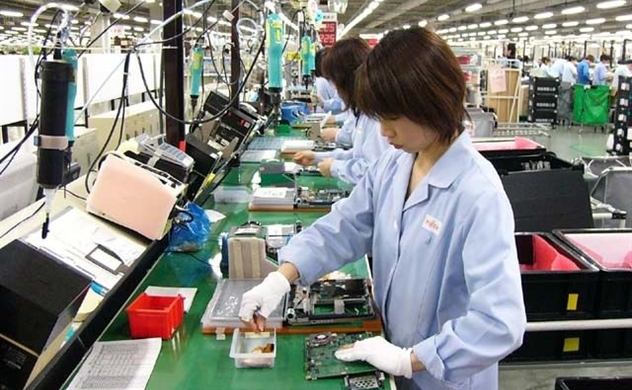
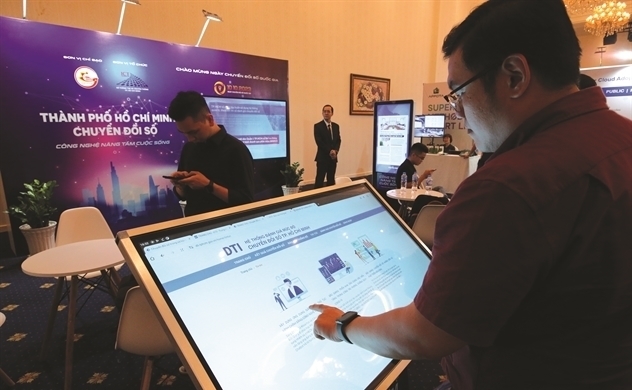
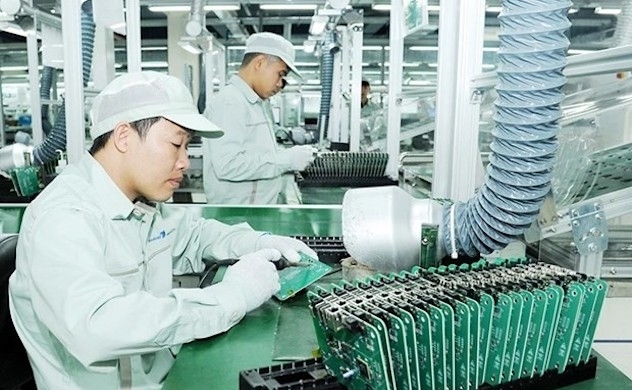





_291615658.jpg)
